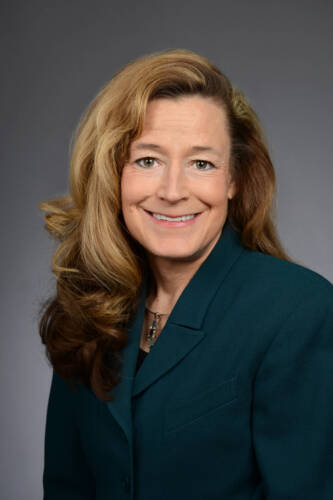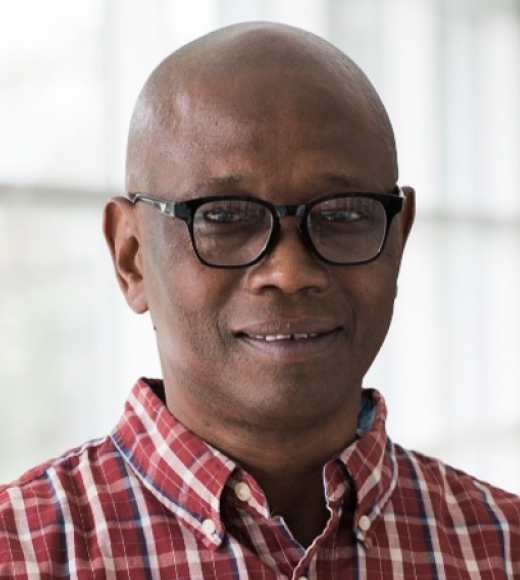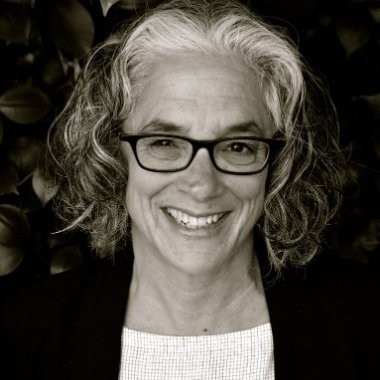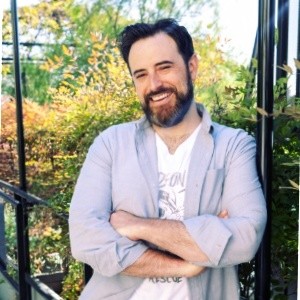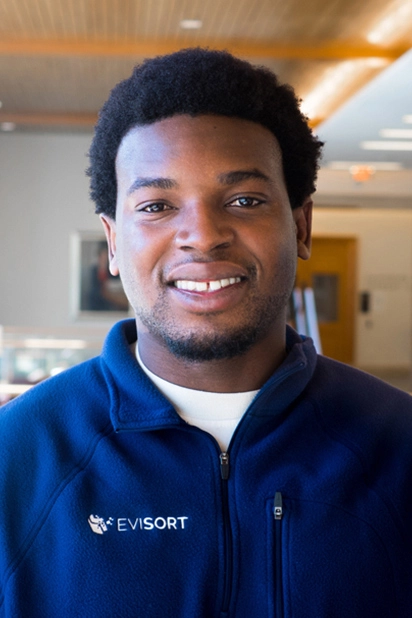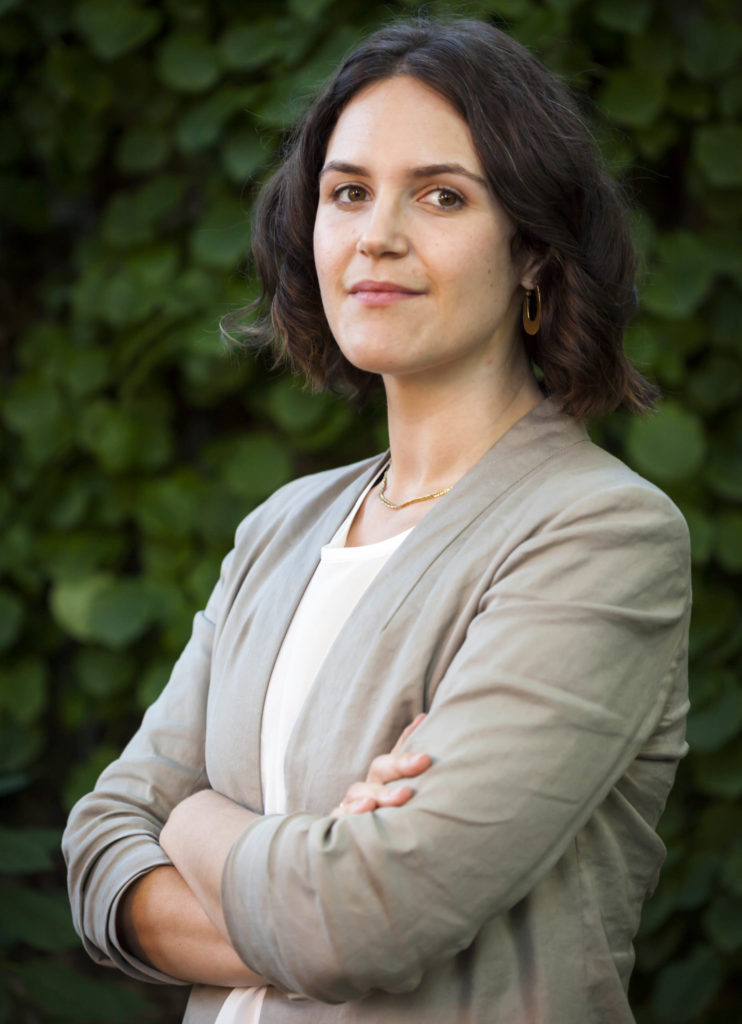Welcome to the first episode of a new podcast, Thanks for Listening.
This podcast will spotlight efforts to bridge the political divide in the U.S. through dialogue and collaborative processes, profiling the important and often courageous work of individuals and organizations who are helping citizens engage with one another on challenging topics. Episodes will dive deep into such issues as: managing difficult family dynamics and relationships affected by partisan differences; bridging the divides in Congress, the media, and in our social media spaces; training youth to move through conflict and toward civic responsibility; embracing dialogue in the face of extremism; engaging with others on highly emotional issues; and on working to restore divided communities. We hope that through the everyday examples of ordinary and extraordinary people all over the country, listeners will find optimism that we can—and are—moving beyond partisan divides, as well as inspiration to become part of the solution.
In this first episode we’ll look at politics around the Thanksgiving table—the start of a long month of family gatherings and meals to celebrate the holidays.
This podcast is made possible with a grant from the American Arbitration Association International Centre for Dispute Resolution Foundation. You can also listen on:
![]()
![]()
![]()
![]()
![]()
Hosts

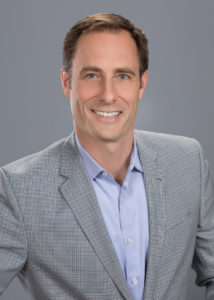
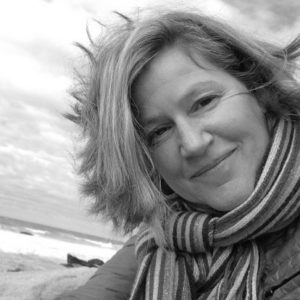
Sara del Nido Budish Neil McGaraghan Kate Ellis
Host Host Producer
Resources
You can find the study Neil and Sara reference here: “The effect of partisanship and political advertising on close family ties” by Keith Chen and Ryne Rhola (Science, 01 Jun 2018: Vol. 360, Issue 6392, pp. 1020-1024 DOI: 10.1126/science.aaq1433)
Thanks for Listening is made possible with a grant from the American Arbitration Association International Centre for Dispute Resolution Foundation.
Guests
 William (Bill) J. Doherty is a licensed marriage and family therapist, psychologist, educator, researcher, speaker, author, consultant, and community organizer. He received his Ph.D. in family studies from the University of Connecticut and currently serves as Professor and Director of the Marriage and Family Therapy Program in the Department of Family Social Science in the College of Education and Human Development at the University of Minnesota. He has authored or edited fourteen books for professionals and lay audiences, well as numerous articles in professional journals on the topics of family rituals, marriage, confident parenting, and the family dynamics of wedding planning.
William (Bill) J. Doherty is a licensed marriage and family therapist, psychologist, educator, researcher, speaker, author, consultant, and community organizer. He received his Ph.D. in family studies from the University of Connecticut and currently serves as Professor and Director of the Marriage and Family Therapy Program in the Department of Family Social Science in the College of Education and Human Development at the University of Minnesota. He has authored or edited fourteen books for professionals and lay audiences, well as numerous articles in professional journals on the topics of family rituals, marriage, confident parenting, and the family dynamics of wedding planning.
 Joan Blades is a founding partner of Living Room Conversations, an open-source project created in an effort to bridge differences and foster respectful meaningful, civil discourse across ideological, cultural and political lines. She is also a cofounder of MomsRising.org and MoveOn.org, and co-authored award-winning books, The Motherhood Manifesto and The Custom-Fit Workplace: Choose When, Where and How to Work and Boost the Bottom Line. Joan is trained as an attorney/mediator and has ten years of experience as a software entrepreneur as co-founder of Berkeley Systems.
Joan Blades is a founding partner of Living Room Conversations, an open-source project created in an effort to bridge differences and foster respectful meaningful, civil discourse across ideological, cultural and political lines. She is also a cofounder of MomsRising.org and MoveOn.org, and co-authored award-winning books, The Motherhood Manifesto and The Custom-Fit Workplace: Choose When, Where and How to Work and Boost the Bottom Line. Joan is trained as an attorney/mediator and has ten years of experience as a software entrepreneur as co-founder of Berkeley Systems.
 Mary Gaylord is the Program Development Partner at Living Room Conversations. Having completed a masters degree in Organizational Leadership and Alternative Dispute Resolution at University of Denver, Mary has worked as a community mediator, victim-offender reconciliation specialist and facilitator of bully prevention programming for school-aged children.
Mary Gaylord is the Program Development Partner at Living Room Conversations. Having completed a masters degree in Organizational Leadership and Alternative Dispute Resolution at University of Denver, Mary has worked as a community mediator, victim-offender reconciliation specialist and facilitator of bully prevention programming for school-aged children.
Transcript
Sara Del Nido Budish: From the Harvard Negotiation and Mediation Clinical Program at Harvard Law School, this is Thanks for Listening, a podcast about fixing what’s wrong with America’s partisan divide. I’m Sara del Nido Budish
Neil McGaraghan: And I’m Neil McGaraghan. Welcome to the show!
If you are anything like us you’ve grown more and more alarmed at the deepening divide in this country. And with the midterm elections just behind us, the evidence of partisan bitterness is as vivid as ever. Stories of polarization in America have become, unfortunately, all too familiar.
Sara: Less familiar maybe—and to us, far more interesting—are the stories about people and organizations who are actually DOING something about it. We’ll introduce you to the folks who are stepping up to bridge the partisan divide, by helping people engage with each other on charged topics, and in charged settings.
Neil: In this podcast we’re going to explore ideas and tools that are helping people connect across major differences. We’ll hear from people tackling polarization in Congress, in the media, and on social media. We’ll focus on how to keep the conversation going in the face of extremism, and we’ll bring you stories of people working to restore divided communities. We’ll introduce you to folks who are doing this work nationwide and, we hope, leave you more optimistic about our collective ability to work past what divides us.
Sara: So, Neil, it’s time to talk turkey.
Neil: You mean… it’s time to get down to business, I guess?
Sara: Well yes, but also, let’s literally talk turkey. As in Thanksgiving. Today we’ll look at politics around the Thanksgiving table—the start of a long month of family gatherings and meals to celebrate the holidays. And to set the table, so to speak, we thought it might help to do an informal survey of people’s experiences. So we asked Harvard Law students, Ethan and Etiene, to take a hand-held recorder down to the street and talk to passersby.
- Passerby 1: “Family thanksgiving is for special occasion to be with the family, enjoy family, make jokes, things like that. Anything serious we don’t want to talk, especially during dinner time”
- Passerby 2: “There’s nothing wrong with getting fired up about it. But it’s a family gathering. We don’t need to start a food fight over Thanksgiving, over President Trump and how Obama did as president.”
- Passerby 3: “I have a mother who’s very pro-Trump, and the rest of the family that’s very not pro-Trump . . . . Normally there is some argument that arises, but we try to keep it civil so we try to stay away from the topic. But yeah, it normally turns into a three-on-one kinda deal.”
- Passerby 4: “We probably won’t approach it because we have a lot of other wonderful subjects we could attack. It’s too . . . we can’t find the middle ground.”
Sara: For many people these days, it’s hard to find the middle ground. And maybe you’re struggling with this too. When your family sits down to a holiday dinner, is the goal to keep it light? Avoid talking politics for fear that things could get ugly? Even if you haven’t experienced it personally, no doubt you’ve heard or read stories about relationships ruined by angry debates over politics over the Thanksgiving dinner.
Neil: Yeah, in fact, recent polling by Reuters/Ipsos found that nearly 1 in 6 adult Americans has stopped talking to a family member or close friend as a result of the 2016 Presidential election, and 1 in 7 has actually ended a relationship with a close family member or friend.
Sara: And if you like polls, here’s another to chew on . . .
Neil: So to speak.
Sara: Indeed. A Quinnipiac poll last November showed that 63% of American voters hoped to avoid talking politics at Thanksgiving.
Neil: So, whether you’re a trained pollster, or students chatting with passersby, the data seem to confirm what many of us have experienced firsthand—it’s difficult, and potentially even damaging, to talk politics at Thanksgiving so people are simply avoiding it.
Sara: That’s right! And to ensure they’re not unwittingly drawn into battle, one recent study showed that people are actually cutting down on the time they spend at Thanksgiving dinner.
Neil: I find that fascinating. So Thanksgiving is this holiday that families come together to enjoy each other, and it’s turning out that people are so afraid of facing people who disagree with them on the political issues that they’re cutting their Thanksgiving short and going home early. That’s amazing.
Sara: Yeah. So something is definitely happening with families and the politics that’s dividing them. But why Thanksgiving? And what is it about families that can make this so tough? To help us understand this, we asked Bill Doherty, a family therapist who teaches at the University of Minnesota. Bill told us that he works with people who dread going home to family for the holidays because they have polar opposite views on politics.
Bill Doherty: Yeah, well families by definition are people with a history. So let’s just start there. You have relationships where there may have been contention already, like with a sibling. You know, siblings are always doing some version of “you’re not the boss of me” or “you’re not smarter than me” or “you’re not mom or dad’s favorite”. You know people can be in their 50s and still, still do this you know. So imagine for example that your parents are opposite from you politically but your sibling is with your parents. So there you have a classic coalition going on in the family, okay, with people that you care about. You don’t get that in the same way with neighbors or friends or other sorts of folks where this coalition comes out. So there’s history this coalitions, there’s power, all kinds of things
Neil: So, not that any of that sounds familiar at all based on my personal experience—
Sara: Nor mine, of course.
Neil: —but it makes good sense. We bring the good and the bad of our family relationships to the Thanksgiving table with us
Sara: Right, and we haven’t even touched the in-law dynamic yet.
Bill Doherty: The thing with the in-laws is that they’re family but they’re also strangers, right? You’re inside this little cultural bubble. Every family has its own culture. You’re supposed to be there at Thanksgiving, whatever, and you’re related, and yet, these people are strange and different in some way and you’re never fully in. And so, if you’re there with your spouse and you get into a political argument with say your parents and so all of a sudden your spouse kind of weighs in, or your spouse stays completely silent and then maybe you wish that she was supporting you on it. And then, of course then afterwards you’re processing it with your spouse, and you may be upset with your parents but my goodness, if your spouse puts them down, like “I can’t believe your parents are so ignorant,” well wait a minute here! You know, like, “You think your parents are like Nobel Prize winners?” Right? So, you can you see these loyalty things come out even with people that you know we differ with in the family and the spouse is not in the same loyalty relationship. So it can go badly in lots of ways.
Sara: Ok, so it seems pretty much inevitable. Family gathers, some kind of drama ensues. But what is it specifically about politics that can be so difficult for families? Why does the partisan divide sometimes feel wider, and more challenging or even threatening, when it comes to our own family members? We asked Bill to weigh in again:
Bill Doherty: The thing about these political conflicts now is that they have become about identity. It’s like, what kind of people are we? See if it’s a neighbor, if it’s a co-worker, and I discover that they differ from me in some fundamental way related to identity, values, how I approach the world, it’s not threatening in anywhere the same way. But when family members see themselves as having different identities, well family is all about identity, family is all about we. And now there’s a split in the “we” around something really important. And so what happens is, if we as a family get into these political discussions the level of reactivity goes up. The ability to be polite and diplomatic goes down and people send each other versions of this message, “How could you possibly hold that view? How could you possibly think the way you’re thinking?” Which then creates reactivity in the other person, because we’re no longer talking about issues or politicians. We’re talking about, it’s intolerable for me that you are so different from me. At a family systems level, that’s what’s going on. And so what a lot of people do then, families, is just avoid it. Stay away, and then it’s the elephant in the room.
Neil: And that’s the problem. When we avoid the differences, when we decide not to engage and we sweep it all under the rug, the divide never actually gets bridged. Maybe the gap even widens. As a therapist, Bill actually helps individuals do the challenging internal work of preparing for these kinds of encounters with family.
Bill Doherty: None of what I said before about the threat to identity, the threat to sense of self has to be in play for any individual. And so what I help people do is to emotionally accept that their loved one has a very different set of political views on things that maybe relate to race, immigration, abortion, and that it’s okay to allow them their space, their views without it being a threat to me and my identity. So a lot of the preparation work is to release myself from the burden of either having to convince you to change your mind and heart or to feel that I have to defend my mind and heart. And so to accept our difference where neither of us has to change.
Sara: But with Thanksgiving and the holiday season already upon us, therapy might not be a practical answer for what to do at the table right now. Heading into this season, what if you are looking for strategies to engage with your family, only more productively? What if you want your parents, or your siblings, or even that crazy uncle, to know that you care about them enough to talk through your differences and not let them define any of you?
Neil: Or maybe you’re a realist. You know that in your family politics are going to come up and you’d just like the conversation to go better this year than it did last year? Well the folks at an organization called Living Room Conversations have put a lot of thought into these questions, and they’ve been helping people work on having meaningful conversations across divisive issues.
Sara: Joan Blades is one of the founders of Living Room Conversations. We spoke with her about its platform, how it works, and why it works. But first, some back story.
Neil: Joan had previously founded MoveOn.org, a progressive citizen action movement, about as liberal an organization as you’ll find. Back in 2010, Joan connected with Mark Meckler, one of the founders of the Tea Party, about as conservative a movement as you’ll find. They wanted to meet and see if they could find some common ground. It took them a while, but they finally agreed on a topic. Joan invited two friends, Mark invited two friends and they all sat down together.
Joan Blades: And we had this amazing conversation where we discovered that we agreed on a bunch of things, like the bank should not be able to gamble with our money and get reimbursed when they lose it and get to keep it when they do well. And criminal justice was an area where I had no idea that . . . complete agreement. Too many people in prison. War on drugs not a success. Gotta use evidence-based practices. And with his friends and my friends there also was a really diverse group and it just gave us both a solid grounding that set us on this path to being able to talk about it.
Neil: So from this personal experiences that people with drastically different worldviews could come together and listen to each other and actually find a way to get past the areas of disagreement to areas where working collaboratively is possible, Living Room Conversations was launched.
Joan Blades: There is a set of agreements. Basically what you learned in kindergarten: take turns, be respectful, be curious on your part of the conversation, and then a structure that starts with just talking a little bit about your deeper values. Couple questions that leads you there. And then the meat of the conversation are these four or five personal questions about your relationship to the topic you’ve chosen. And we have over 70 topics now, ranging from guns and responsibility, to forgiveness, to money and values. And then the close of the conversation is just reflection and next steps.
Sara: And that’s the gist of it. Two people with different perspectives on an important topic, each brings two friends and, with the help of some initial agreements about how the group will interact, they have a conversation.
Neil: So let’s just pause there for a second and focus on those conversation agreements that Joan mentioned. One of the things that helps dialogue work is when people buy into a set of norms at the outset of the conversation that help guide the way they interact with each other. As Joan said, they’re not difficult concepts. Be respectful of each other, be generous to each other, have some genuine curiosity about other people’s point of view.
Sara: These are really powerful tools. But the divide in America today seems so wide and so deep. How do you attack that, you know, one six-person conversation at a time? Joan readily acknowledges that it’s a really tough challenge.
Joan Blades: This polarization has been incredibly painful to people not only politically but personally. You know, the number of people I’ve seen with tears in their eyes because of relationships lost or injured by partisanship. It’s hard, it’s sad.
Neil: It is sad, but Joan Blades is optimistic about the potential for Living Room conversations to make a difference.
Joan: This is very intentionally structured so we could have 10,000 six person conversations in a weekend. It doesn’t require a facilitator specifically so it’s massively reproducible. And we have church communities stepping up because, you know, “love thy neighbor” is a core of all major faith traditions. Utah’s actually in many ways the strongest state in the union when it comes to doing this kind of work. And now we have a communities in Texas and California that are doing monthly Living Room conversations because it’s about the relationship. It’s about being able to care about and even love people that have very different views than our own.
Sara: Here’s the thing, Neil. You know, it sounds like this model is simple, reproducible and that communities all over the country are in fact using it, but I’m still thinking about what Bill Doherty said. You know, that it’s all fine and good to use these strategies with strangers or maybe even friends or neighbors. But when it’s family, there’s a whole other set of dynamics in the mix, and sometimes all the normal rules go out the window. Aren’t we here to talk about Thanksgiving and the unique difficulty of bridging the divide with family members?
Neil: We are indeed. And this is something Living Room Conversations has heard from many others, too. So they’ve taken the basic lessons and principles of their conversation guide and applied them to helping people better engage with family members around politics. Mary Gaylord is Living Room Conversation’s Program Development Partner. She and her colleagues developed a guide to help people have constructive conversations with their family when they gather over the holidays.
Mary Gaylord: So, it’s called “The Friends and Family Guide” and the subtitle is “How to Talk to Your Family and Not Kill Each Other.”
Sara: Okay, so a bit of a low bar there.
Neil: I suppose so. But Mary acknowledges that the usual Living Room Conversations format—I bring two friends, you bring two friends, we all agree to the conversation norms—probably isn’t how most people’s Thanksgiving dinner goes down. As Mary says, families don’t just push our buttons, they installed them.
Mary Gaylord: You know you may be middle-aged, or what have you, but you go back to your family and you know, it’s your older brother making you feel like you’re the little sister again, or what have you, and so we really want to give people an option for changing and getting out of that well-worn groove that for some people is really painful and really makes it hard for them to be around family.
Sara: So the guide offers specific and practical tips around how we can each show up differently to difficult political conversations with our family, you know, better prepared to listen and be curious and engage, rather than laying traps, or falling into those old patterns. And it points out common mistakes people make in conversations with family. And importantly, the guide offers some First Aid if, or maybe, when, those old buttons do get pushed.
Mary: You know one of the things, when I first started doing this work I thought everybody should have a living room conversation. Now I’ve learned that, no that that’s not necessarily the case. Some people do not want to engage in this way. And the only thing I can really do at that point is change my approach and especially with family. I think we have these predictable routines and dynamics with each other. If I say X he’ll do Y, and if I don’t say X, if I don’t say anything, or if I say Q, then it’s not gonna be Y, it’s going to be different. The dynamic changes and it shifts. And you know I’ve seen this with my own family, with my parents in particular. And it’s taken some work. You know, we still don’t have much overlap in terms of our political choices, but we have the ability to have conversations now that we couldn’t have five years ago. And so you may not choose to have a whole living room conversation with family members at the Thanksgiving table, but you might choose to listen differently.
Neil: And so what would that look like?
Mary Gaylord: You might choose that, instead of feeling like you must react to everything that is said that you find objectionable, you just listen, you just let it pass. Or you might ask a question with real genuine curiosity. “Hey Joe, why do you see it that way? Is there something that you would base that in your experience that that led you to really see this particular issue from this lens?” And you ask with real curiosity, not the cross-examination. And know when to walk away. Like, there are times when, and sometimes, you know, it doesn’t have to be a complicated excuse, but maybe you test the waters. You just say “OK I’m gonna have this conversation with somebody that I have decades of history of conversation not going well”. And you just try one or two little things and then maybe the next day or the next gathering you wade in a little bit deeper.
Neil: Now, in some ways that seems so simple and really based on common sense. But for a lot of us this is revolutionary stuff, especially when it comes to dealing with family.
Sara: Yeah. But it’s not just family. You know, this can be revolutionary for the way we show up to all kinds of conversations in other parts of our lives too.
Mary Gaylord: I think changing the world six people at a time, one conversation at a time, is gonna be a long work day. But I think it changes behavior, and it does for me. I’ve been doing this for, you know, three-and-a-half, four years and I don’t have a living room conversation every day, and I don’t have a living room conversation with everybody, but I do change the way that I listen to people and I change the way that I interact with people, and I change the way that I might speak up if I’m going to a city council meeting or to a PTO meeting or I’m working on a neighborhood issue where we’re trying to figure out whether or not we should add a stoplight to an intersection. So it changes the way that I go out and I problem-solve. And it changes the way that I listen to people. And I think that’s where the multiplier effect comes in.
Neil: And you know, what’s one thing that’s really interesting is that, for Mary, all of the work she has done with Living Room Conversations, and in her own family, has led to a fundamental shift in the way she approaches disagreements.
Mary: The single most personal valuable lesson I’ve taken away is, it’s not my job nor am I responsible for changing people’s minds. And the subtext to that is I probably can’t. I probably can’t. I’m probably not going to convince my brother that the candidate he voted for was the wrong choice. Just as much as he’s not going to convince me of the opposite. But I can listen and I can understand, and I can not talk so much.
Sara: And even though it can be hard worl, even if the temptation is to, you know, leave early or keep it light at Thanksgiving, that’s not the only answer. Instead of turning away from conversations about difficult topics or issues that are important to us and to our loved ones, we have a choice. We can show up to those conversations in a way that deepens and improves our relationships. Joan Blades sums it up perfectly.
Joan Blades: We kind of forget how powerful listening is. This is not about persuading people. There’s a kind of a perverse thing is when you try to persuade people it’s not very effective honestly. But when you really listen to people, it softens our boundaries. We start to care about what each other care about and then sometimes people actually change a little bit.
Sara: This is Thanks for Listening, from the Harvard Negotiation and Mediation Clinical Program. Neil, you know, something Mary said really stuck with me. That changing the world six-people at a time is a long work day. It’s clear that engaging in Living Room Conversations has powerful ripple effects. It’s a great model, and it made me wonder what others are doing to draw people together to work across differences.
Neil: Yup, and that’s exactly what we’re going to be exploring in the rest of this series. In our next episode, we’ll meet a diverse group of teens in Maine who decided to take on some tough topics that they disagreed on, like gun rights and immigration, and then they come up with a set of policy suggestions for their political leaders. How’d they do it? And why?
Sara: We hope maybe you heard something here to take with you. Maybe to the Thanksgiving table, or other family gatherings on the horizon. This podcast was edited and mixed by Kate Ellis. Original music provided by Blue Dot Sessions. Production support from the awesome crew at Harvard’s Media Production Center, and the indispensable Tracy Blanchard.
Neil: And of course we couldn’t do any of this without a generous grant from the American Arbitration Association’s ICDR Foundation. You can find us on Apple Podcasts and on SoundCloud. If you like what you heard, please leave us a review. That’ll help others find us. Resources and information about the people and organizations we talked about on this episode are available on our website at www.law.harvard.edu/negotiation, under the “Blog and Podcast” tab. And while you’re there, please leave us a comment or reaction, or your own Thanksgiving stories. You can also call our comment line, at 617.998-6227,
Neil: I’m Neil McGaraghan.
Sara: I’m Sara del Nido Budish.
Neil: This has been Thanks for Listening. And, thanks for listening!

